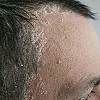Harvard Health Blog
For women, sexuality changes with age but doesn’t disappear

Let’s face it, ladies: Sex is a topic you usually discuss behind closed doors with your partner or during lunch with your closest friends (glass of wine optional). But I’ve noticed as I’ve gotten older that sex isn’t the hot lunch topic it used to be. That’s no surprise, considering how the activity that once consumed us now has to fit into the patchwork of our lives that also includes work, kids, aging parents, and, oh yes, glorious sleep. But it does make me wonder about the future. Is there a time when sex will no longer be on the agenda? And can we—should we—change that?
The answer, it turns out, is that it’s likely up to each of us. A research letter out this week in JAMA Internal Medicine reports that women between the ages of 40 and 65 who place greater importance on sex are more likely to stay sexually active as they age. In other words, if it’s important to you, you’ll keep on doing it. "Having taken a lot of sexual histories from midlife women, it’s probably true!" says Dr. Jan Leslie Shifren, associate professor of obstetrics, gynecology, and reproductive biology at Harvard Medical School, and co-author of the Harvard special report Sexuality in Midlife and Beyond.
Dr. Shifren points out that the research letter did not find that sex was more satisfying for women who stated it was important to them, just that they were more likely to remain sexually active. It’s also not clear how often they had sex.
There are many reasons why sex may slow down for women when they get older, not least of which is menopause. When the ovaries stop making estrogen, the vaginal lining becomes thinner, there’s less vaginal elasticity, muscle tone, and lubrication, and arousal takes longer. As a result, women may experience
-
decreased libido (a lack of interest in sex)
-
difficulty with lubrication
-
pain with penetration
-
difficulty or inability to climax.
Some women may have sexual dysfunction that’s related to social or psychological issues, such as stress, anxiety, body image problems, relationship problems, or the lack of a partner.
Poor health can also get in the way of having sex. Heart disease can reduce the amount of blood that reaches sex organs, making it difficult to fill the blood vessels around the vagina that are crucial for adequate lubrication and arousal. High blood pressure, diabetes, depression, and incontinence can all nudge sex aside. Medications for a variety of conditions can have anti-sex side effects. For example, some drugs used to treat depression or high blood pressure can blunt interest in sex or cause difficulty reaching orgasm.
So what’s a woman to do? Seek treatment. That may not be as complicated as you think. Many sexual problems can be reversed with appropriate therapy, especially if they’re relatively new. Dr. Shifren says treatment is often successful.
Some therapies are simple, such as using a lubricant or low-dose vaginal estrogen for dryness and pain, or swapping one medication with negative side effects for another. Sometimes the treatment may be more involved, such as hormone therapy for decreased libido or sex therapy for inability to climax.
But clinical therapy is just part of the prescription. These lifestyle changes can also make a difference:
Exercise—it can improve your sexual function by improving blood flow and strengthening your heart.
Quit smoking—it will improve blood flow to the sexual organs and may also stave off menopause for a few years.
Drink alcohol in moderation, since large amounts of alcohol can dampen sexual reflexes, trigger hot flashes, and disrupt sleep.
Control your weight to give you the body image you want.
Eat a healthy diet, which helps prevent heart disease and diabetes, and helps you maintain a healthy weight.
Dr. Shifren also offers this advice: "Bring some novelty to your life. Take vacations. Go on date nights."
Why bother with all this? Sex is important to women’s health. It revs up metabolism and may boost the immune system. Frequent sexual intercourse is associated with reduced heart attack risk. It can help the vagina stay lubricated, elastic, and healthy. And it’s fun.
If it’s important to you, you should be able to enjoy sex well into your older years. And that’s something worth talking about.
Disclaimer:
As a service to our readers, Harvard Health Publishing provides access to our library of archived content. Please note the date of last review or update on all articles.
No content on this site, regardless of date, should ever be used as a substitute for direct medical advice from your doctor or other qualified clinician.












